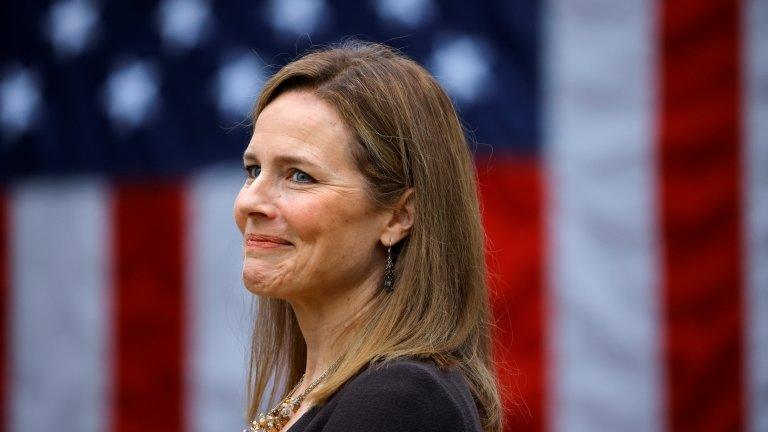The looming battle over abortion in the US
- Published
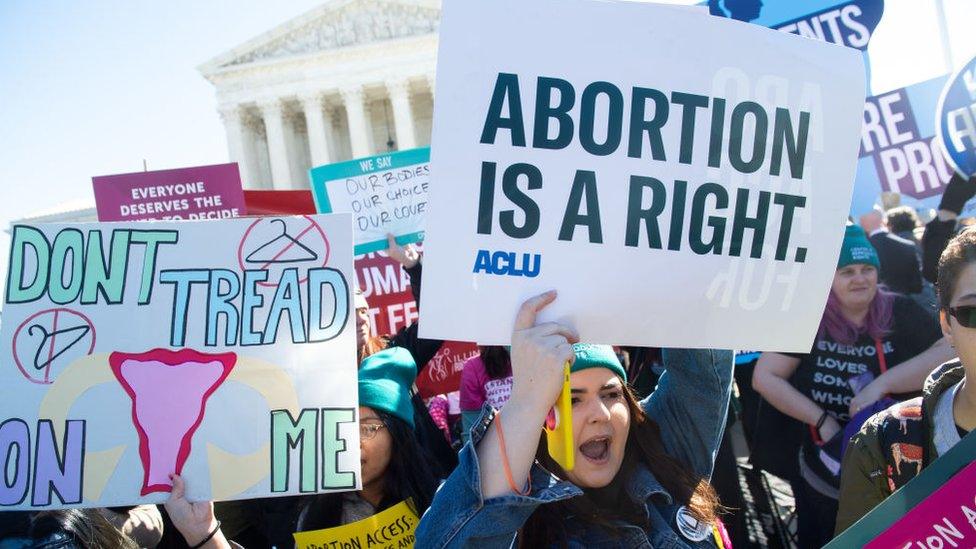
Pro-choice activists say that state lawmakers across the country are trying to restrict abortion at a pace not seen in decades. So what will this mean for a decades-long fight over the issue in America?
On a Friday night, Julie gets ready to go out with her partner while her two boys curl up on the sofa to watch a Disney movie with their babysitter.
It is a typical happy family scene, one that Julie probably never envisaged when, aged just 19, she was raped and took the decision to have an abortion.
"I come from a small town in Ohio. All German Catholics, very conservative. So when I found out I was pregnant I panicked. I didn't know what to do. I knew that I could not have this baby," she says.
She had been fervently anti-abortion then, but when she got pregnant against her will, her views on the subject changed completely.
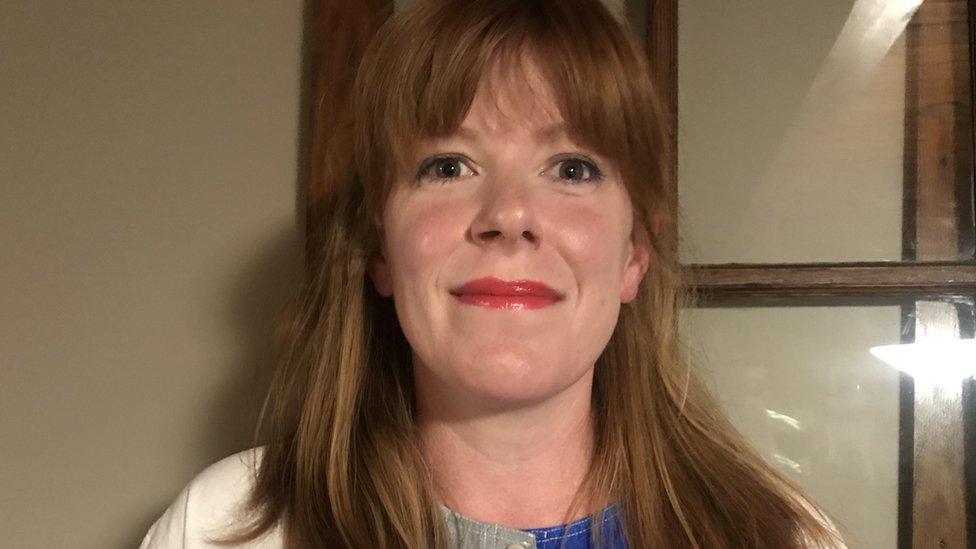
Julie says she's concerned by the current proposed legislation in the US
And, several years later, after an unplanned pregnancy during an emotionally distressing time following her mother's death, she took the decision to have another abortion.
"My abortions, I have no regrets whatsoever for them," she says.
"In fact, it's changed my life. After my first abortion, I had my first examination as a grown woman. I got on birth control. I made yearly appointments for my pap smear and checks. I feel that girls and young women from small, religious communities have a fear or think that they don't need that."
Julie says the current spate of anti-abortion legislation introduced across the country worries her.
"I think it's important for all of us to take a stand and fight for our reproductive rights because, like me, you never know when you are going to be in that position and what you are going to do."
According to a report by two prominent pro-choice groups, Planned Parenthood and the Guttmacher Institute, more than 500 such restrictions have been introduced so far in 2021, external - significantly more than a comparative period in any other year since the 1970s, when abortion was legalised across the country.
These restrictions run the gamut from a near total ban in states like Arkansas and Oklahoma - where new laws would bar access to the procedure except under very limited circumstances - to states like Idaho and Texas that limit abortion after six weeks of pregnancy, before many women might know they are pregnant.
Furthermore, state legislators in Arizona and Ohio have passed laws that will prohibit doctors from performing abortions based on a foetal diagnosis of Down Syndrome.
Some of these laws allow exceptions in cases of medical emergencies, rape and incest.
Republican lawmakers across the country pushing for more abortion restrictions are emboldened by a conservative-leaning Supreme Court shaped by former President Donald Trump's appointments, the most recent being Justice Amy Coney Barrett last year.
And for the first time since she joined the top court, it will take up a case challenging a Mississippi law that bans most abortions after 15 weeks of pregnancy. If this law is allowed to come into effect, it could pave the way for more such bans in other states.
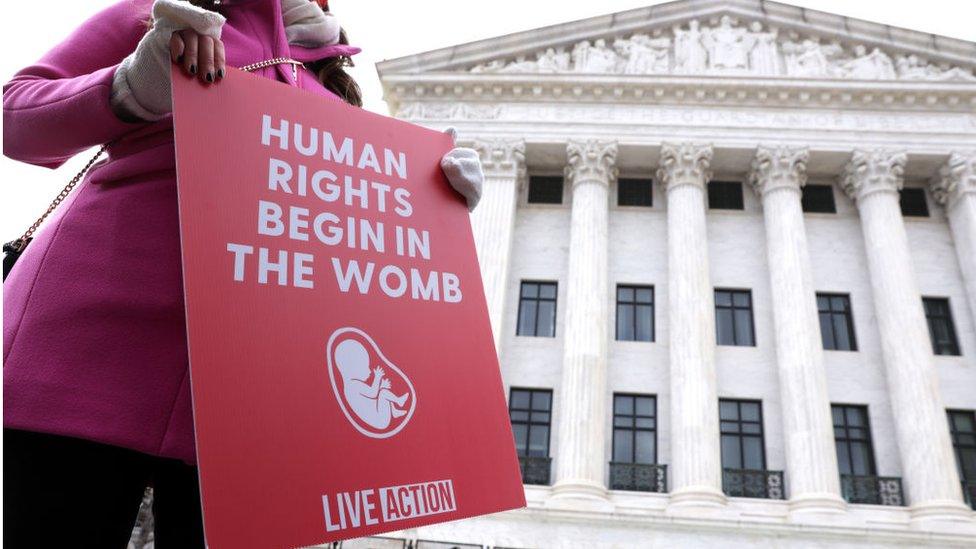
Experts say this slew of legislation at the state level is all part of a strategy by anti-abortion groups to get the Supreme Court to overturn the landmark ruling from 1973, Roe v Wade, that legalised abortion nationwide in the United States.
It protects a woman's right to an abortion only until viability - the point at which a foetus is able to live outside the womb, generally by the start of the third trimester, 28 weeks into a pregnancy.
Allie Frazier, 27, from the anti-abortion group Ohio Right to Life says no life should be disposable. "We don't get to choose who lives or dies based on what is most convenient for us.''
So what about people who end up with unwanted pregnancies?
"Abortion ends a distinct human life. Women deserve better than abortion," she says.
Abortion is arguably the most divisive issue in US politics and it has long been highly charged.
Democrats, who largely support abortion rights, are currently in power in Washington. President Joe Biden has said he will protect a woman's right to choose.
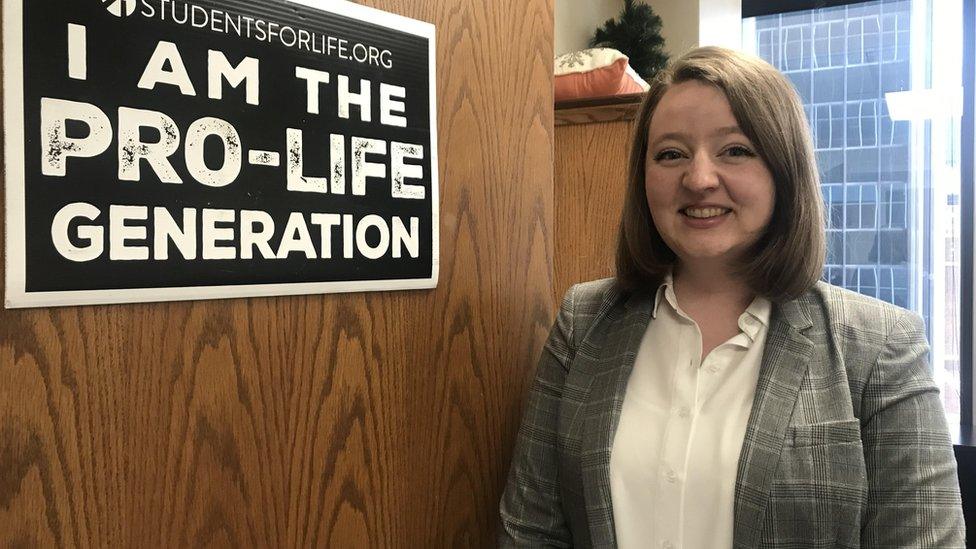
Allie Frazier
However, in recent years conservative anti-abortion groups have put their weight behind bringing in more restrictive abortion legislation in Republican-governed states.
Cathi Herrod, from the group Center for Arizona Policy, which backed the recent state legislation prohibiting abortion on the basis of genetic anomalies like Down Syndrome, says she hopes that abortion in the United States would not only be illegal but unthinkable.
"This directly reflects the will of the people as they have elected legislators who want to regulate abortion and want to look out for the lives of pre-born children as well as the lives of their mothers," she says.
Surveys tend to reveal a complex picture of where Americans stand on the issue.
A 2019 poll by NPR/PBS/Marist indicates that a majority of them do want abortion to remain legal, external but also want restrictions on abortion rights. A Gallup poll last year suggests that most Americans want abortion to be legal only under certain circumstances, external.
And a more recent Pew research survey showed that 59% of Americans want it to be legal under all or most cases.
Maleeha, an immigrant from Pakistan who now lives in Texas, says she was stunned at the number of hoops she had to jump through to get an abortion seven years ago.
She ended up having to travel to Colorado to get one because it was such a challenge in her home state. A relative paid for her flight and hotel as she was then a college student who would have struggled to afford it.
"You hear a lot about freedom in the US and how people are so open-minded and things are so much easier," she says.
"In Pakistan, sure, people don't like to talk about it - but it wouldn't garner the same kind of reaction or horror that it evokes here."
Campaigners like Planned Parenthood say 29 states out of 50 have a majority of anti-abortion lawmakers in their legislatures and are actively enforcing ways to limit access to the procedure. They argue a decision on whether to keep a pregnancy is often based on personal circumstances - and that politicians should stay out of it.
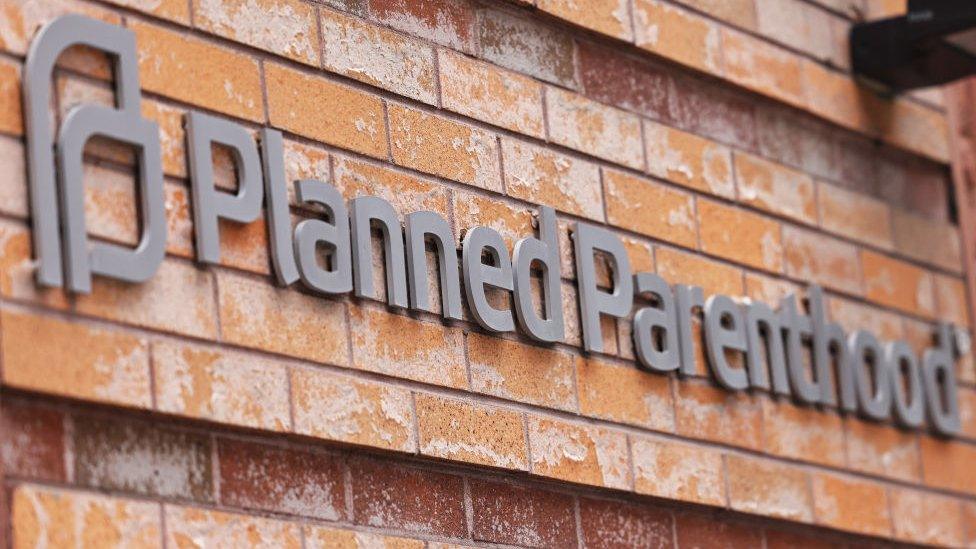
Elizabeth Nash, from the Guttmacher Institute, which has been documenting the state-level restrictions across the country, says: "The amount of legislation that we are seeing has been building for a few years and comes from the fact that policymakers are extremely conservative. We also now have a judiciary that is very conservative because of all the Trump appointments."
Many of these restrictions are set to come into effect later this year but will most likely face legal challenges.
Experts believe that several will be struck down by the lower courts but that some of these legal challenges will end up before the nine members of the Supreme Court. Pro-choice groups fear that the existing law could be significantly reshaped by the top court, if not completely overturned.
Related topics
- Published17 May 2021

- Published19 May 2021
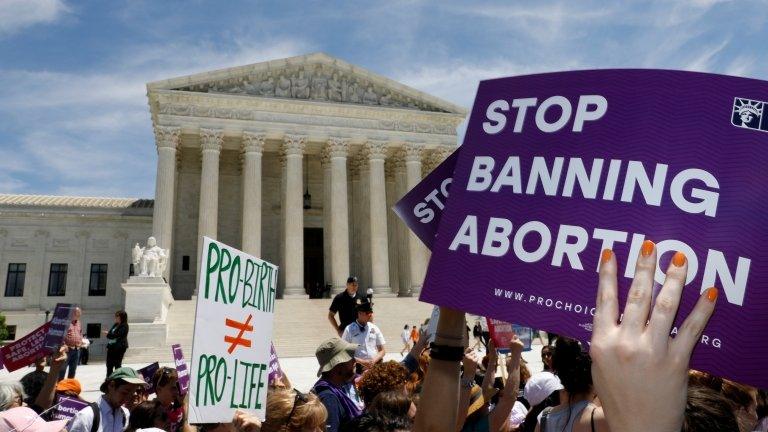
- Published28 January 2021
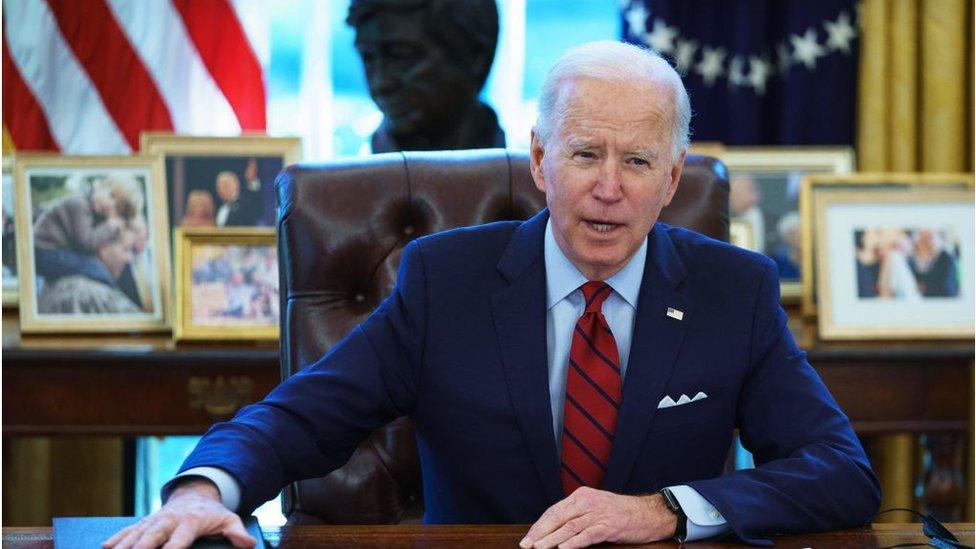
- Published27 October 2020
